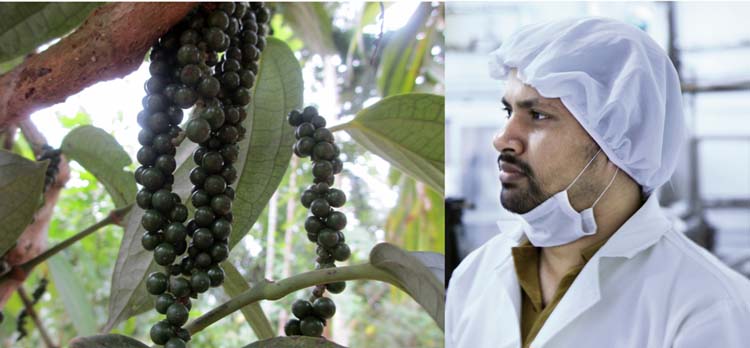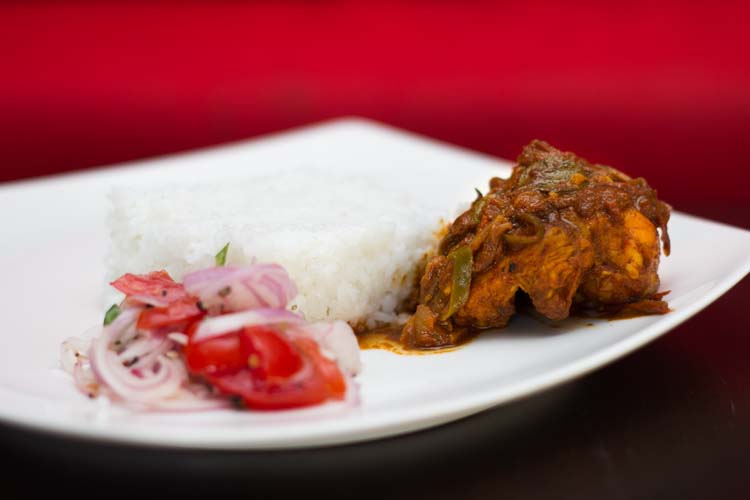
Ma’s offer compelling example in Organic Farming
Healthy eating is becoming a growing trend in Sri Lanka and this commitment is a great start towards a healthier life,including more vegetables, whole grains and good fats in our diet.
Once found rarely available around the country, organic food is now a regular feature at novel concepts such as The Good Market with some supermarkets also stocking these produce.
Ma’s Tropical Food Processing (Pvt) Ltd recognised for its deep commitment to the sustainability of the environment and in its responsibilities to the community, offers an inspiring example of its practices of
of going beyond its own business to care about organic agriculture in general.
“Being ‘organic’ goes beyond just producing healthy food. For a social entrepreneur it means a much larger commitment to society and nature”, said Mario Alwis,Managing Director Ma’s Tropical Foods. “Our forefathers cultivated food in a sustainable way in the past and it’s our responsibility to create incentives for small farmers to learn from our past and combine the advances in technology and science for a better future,” he noted.
However, there is always the question of nutrition, food safety and sustainability. The food we eat and can affect many our health, the environment and even the local economy. This leads to questions such as; what are the differences between conventionally and organically grown foods? Is “organic” always best? What are Genetically Modified organisms? Who are the certifying bodies for organic foods and how does it work?
Commenting on this frame of questions, Alwis said “What’s important for the consumer is that they are consuming fully traceable food which are safe than its conventional counterpart and their choice is contributing positively to the livelihoods of small farmers and a better environment.”
As a leading food manufacturer based on organic farming principles for over 25 years, MA’S increases the capacity for the farmers to increase their income and also establish a farming system that enables the forthcoming generations to continue farming successfully well into the future
“All local raw materials used in the processing of our organic range are produced from material supplied by our small farmer group (SAFENET- Small Agri- Farmer Enterprises Network) who we have assisted to achieve international certification standards for organic & Fair trade. The remaining materials are also purchased from certified suppliers who could trace the materials back to its source,” Alwis emphasized.
Important elements in the organic philosophy include a set of prescribed practices that differ in a number of ways from industrialized agriculture. Only farms that go through independent certification from recognized bodies can label their food organic. Small local farmers often use organic methods but sometimes cannot afford to become certified organic.
The process is expensive, it requires expertise in maintaining detailed records of practices used, complying with periodic on-site inspections etc. Many small farms choose to forgo certification even though their own practices meet or exceed those required.
To help turn the tide and nurture organic farming among its farmer community Ma’s under their corporate social responsibility aims, contributes to the sustainability of the farmers who supply ingredients to their processed foods, spices and especially through the range of products under MA’s Happy Life Kitchen.
“We believe they benefit in many ways and thereby sustaining their farms for the future generations and improving their quality of life,”said SheranAlwis, Chief Compliance Officer, Ma’s Tropical Foods. “We provide our expertise and guidance in organic farming, modern farming technology, documentation, Good Agriculture Practices, budgeting, product quality knowledge whilst facilitating trainings on development planning to the local farmers linked to our supply chain. In some cases we even provide funding to small scale farmers who find it too expensive,” he stated.
With a heritage that provides for the betterment of the local farmers as well as lifting the Sri Lankan spirit for their own home grown foods, Ma’s has set a clear example for everyone on the subject as to how organic foods should matter to your life. This brings to light the question that apart from healthier food habits that will contribute to your wellbeing, as a consumer is it important to determine whether the money you spend on your food should make a statement about your position on issues like local agriculture or environmental sustainability. Think about it when you while you walk around the isles, the next time you go out shopping for food.




